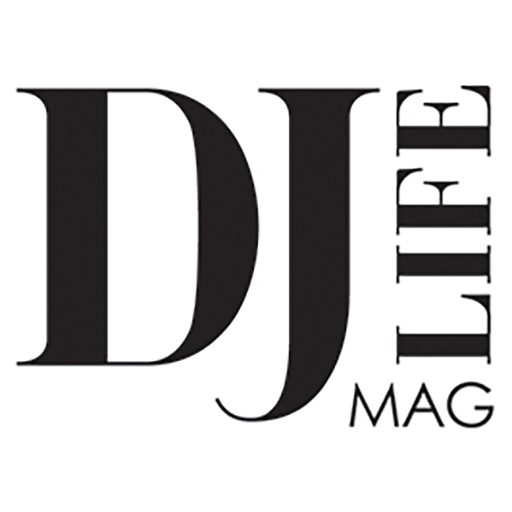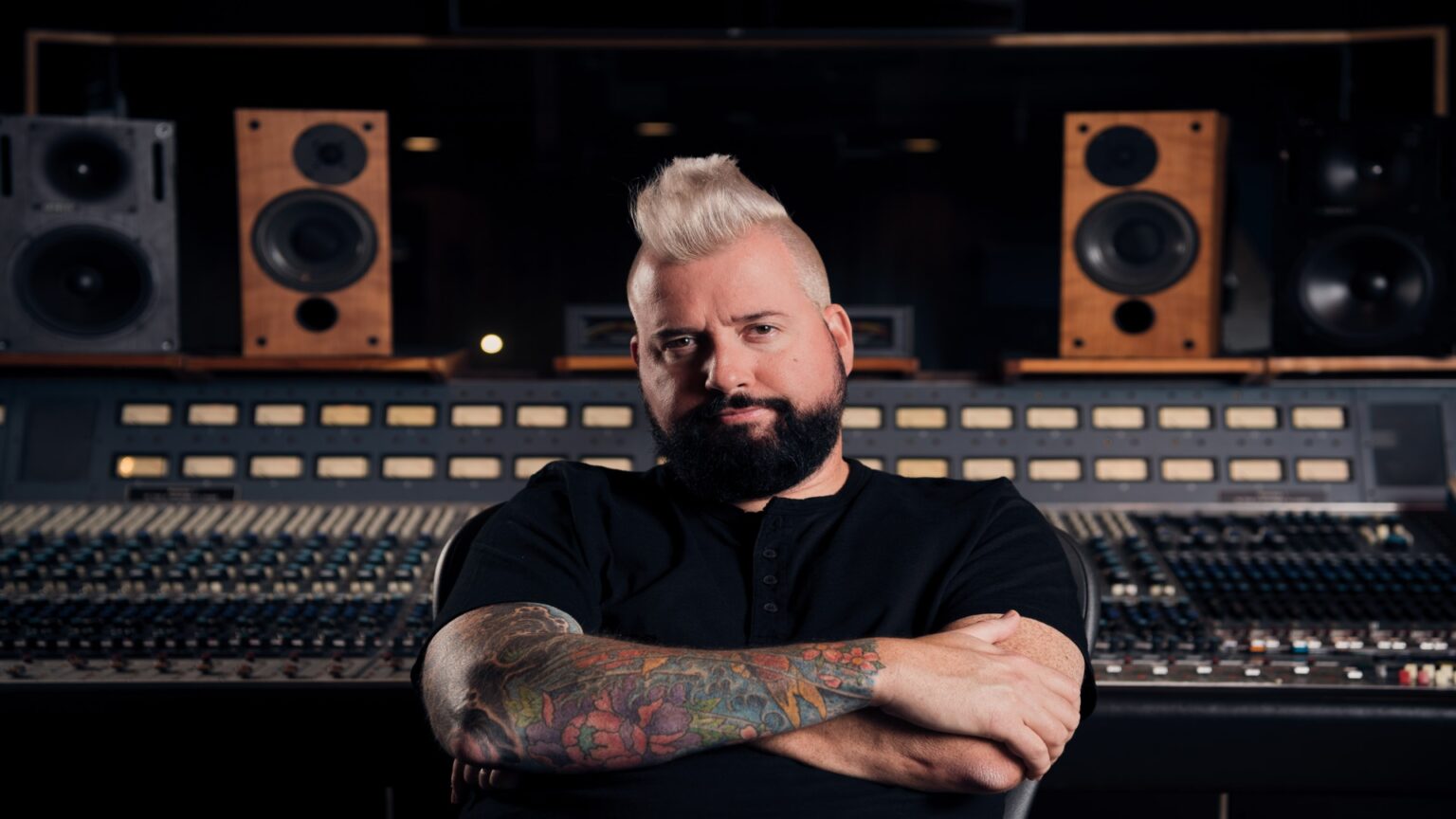By now, a peek at Dave Audé’s burly bio is like looking at a Baseball Reference page for a still-active Hall of Famer. The boldfaced listings of accomplishments can overwhelm you.
A few examples… By his own estimation, he’s made more than 1,500 remixes. He’s created 135 No. 1 Billboard Dance tracks – more than any remixer in history. He’s worked on songs from the very biggest acts in the pop, rock, country, dance, R&B, and hip-hop genres – from Madonna to U2 and everyone in between. In addition to several Grammy Award nominations, he earned his award in 2016 for his remix of “Uptown Funk.”
When we first met, he was running underground imprint Moonshine Music during L.A.’s rave-happy ’90s, a time of vinyl and a more insular dance-music community. But since then, the DJ/producer has flexed out even further, scoring big as a solo artist, remixer, producer, musical director (Pussycat Dolls tour), label owner (Audacious), and Twitch host.
These days, he’s in Nashville and he’s just released Motions, his first solo album in 20 years. On it, Audé offers 11 tightly crafted pop-dance songs (plus three remixes) with a range of talented vocalists, including LeAnn Rimes (the soaring Alanis Morrissette cover, “Uninvited”), Cody Belew (the ultra-catchy “Neon Moon”), ZEE MACHINE (the Italo-piano-fueled title track), and Luciana (the buzzy/sassy “God Save the Queens”). It’s quite a ride.
So, as Audé, 53, prepped for his album’s release, we checked back in with the ultra-decorated DJ/producer.
DJ LIFE MAG: On your new album, Motions, you’ve got a host of really catchy, tightly crafted, electronic pop tunes with a real range of talented vocalists onboard. Why an album now? And how did you decide on which artists to work with?
Dave Audé: I’ve been making records for other people for so long, I really wanted to sit down and see how it feels to produce an album of my own. It was an obvious decision to work with all of my friends when I sat down to do this – so these songs were mostly put together in the past year. Many of these artists I met when I moved to Nashville.
DJ LIFE MAG: What was the process for making this vocal-heavy album? How much of it was done remotely swapping files? How much was done in-person in your studio?
Dave Audé: I think there was only one vocal on the album that I didn’t record myself. So there really wasn’t a whole lot of file-swapping going on, as I’m a one-stop shop! [Laughs] One aspect I really enjoy – and hate – is recording vocals. I also don’t want anyone else copying and editing anything. I guess I’m a bit of a control freak when it comes to that.
DJ LIFE MAG: From your main studio gear, what’s your DAW? Monitors? Favorite plug-ins?
Dave Audé: It’s Pro Tools all the way. My ATC SCM25A monitors are the best speakers I’ve ever owned. Some of my favorite things to use and that were used on this album include: from Waves, Abbey Road TG [mastering chain], Vocal Bender, Aphen Aural Exciter, CLA Epic [reverb/delay], and Abbey Road Saturator; the Soundtoys Decapitator; the McDSP ML4000 [mastering limiter]; from Valhalla, everything they make; from FabFilter, everything they make; from Roland Cloud, the JUNO-106 [synth], SH-2 [synth], TR-909 [rhythm composer], JUNO-60 [synth], and XV-5080 [synth]; from Plug-In Alliance, the Brainworx bx_stereomaker and bx_digital V3 [EQ]; and the Xfer Records OTT [compressor].
DJ LIFE MAG: How did you survive the COVID/lockdown period? Did you do it creatively or was it difficult to find your muse?
Dave Audé: I spend most every day in the studio by myself, so it really wasn’t a huge change for me. My kids spent a lot of time in our pool, which is pretty fun when you’re a kid. I swam more than ever, too.
DJ LIFE MAG: Musically, what were your first influences? What made you want to pursue music?
Dave Audé: My first influences were E.L.O.’s Jeff Lynne, Foreigner’s Mick Jones with their producer Mutt Lange, Journey’s Steve Perry, Erasure/Depeche Mode’s Vince Clarke, and really everything on pop radio when I was growing up in Los Angeles.
DJ LIFE MAG: Over the years, you’ve seen electronic music’s popularity go up and down in the States. But for the past decade, it’s become a predominant genre of mainstream music in the U.S. Why do you think this generation of Americans have gravitated so much toward EDM and DJ culture?
Dave Audé: I think it was inevitable that electronic music would hit the mainstream, due mostly to technology. The internet really helped take all music to the mainstream, instead of just what radio plays. I grew up on radio, so that’s what I liked; but now everyone has access to everything because of things like YouTube. So, I think everyone’s music palettes have become drastically more diverse. Electronic music was bigger everywhere outside the U.S. before the internet explosion, and now it’s just the same everywhere. I’m thrilled that electronic music and DJ culture have exploded – it’s something I’ve spent most of my life involved in!
DJ LIFE MAG: You’ve probably made more remixes than anyone I know – anyone not named David Morales, maybe. What quality do you think the artist/label wants you to bring to their song?
Dave Audé: David Morales was definitely someone I looked up to when I started remixing. He was one of the first guys doing it back in the day. Anyways, I think you just said it… quality. Labels and artists know if they hire me, they will get a quality remix. And because I have produced 1,500-plus remixes, I have a pretty good track record. There are a ton of new guys making killer remixes, but I think consistency takes time. So, when you hire them you are rolling the dice – kinda like when people rolled the dice on me earlier in my career. I think people trust me and like what I do, so they hire me.
DJ LIFE MAG: What did winning a Grammy Award mean to you?
Dave Audé: It means a lot to know that other people in the industry have noticed all of the hard work and countless hours I’ve put in. It’s also pretty amazing that my family has something to show for all of the time I’ve put into my craft. I hope my kids will consider this cool one day and be proud.
DJ LIFE MAG: Which producer/remixers do you most admire and why?
Dave Audé: I usually end up admiring guys that keep knocking it outta the park time and time again. Stuart Price, Calvin Harris, David Guetta, Fisher, CID, Purple Disco Machine, Noizu, and Lissat are all guys that are consistently pumping out solid productions.
DJ LIFE MAG: In the DJ booth, what gear do you use and why? How would you describe your style of DJing?
Dave Audé: I’ve been using Pioneer DJ CDJs since they came out. I haven’t caved into using a laptop yet, but I’m thinking those days might be right around the corner, as I find myself playing more diverse sets these days – from Prides to Jersey Shore to corporate gigs. My style of DJing is a cross between big songs you can sing along to and dirty stuff that hits you in the face. I’m just trying to facilitate people having a good time on the dancefloor.
DJ LIFE MAG: What are a few tracks that are always in your DJ box and why?
Dave Audé: Lissat and Jackers Revenge’s “Dancing Queen.” Doesn’t matter who you are, everyone loves “Dancing Queen.” Guz’s “Set U Free.” This is actually a new remix of a song that was first put out on Moonshine Music, my first label. So, it’s been part of my career for 20-plus years and will always have a special place in my heart. Wildchild’s “Renegade Master.” I have dozens of mash-ups and bootlegs of this amazing vocal from A.D.O.R.
DJ LIFE MAG: What’s next for you?
Dave Audé: I’ve dedicated my life to making music for dancing, so I’ll continue to do that until the dancefloor clears. Also, I’ll be DJing live on network TV on New Year’s Eve this year, playing at The Palms Hotel in Las Vegas, injecting my music into 20 Million households!
To check out more interviews, click here.


